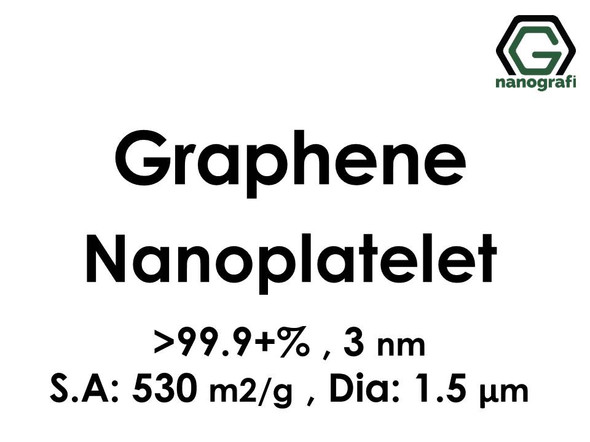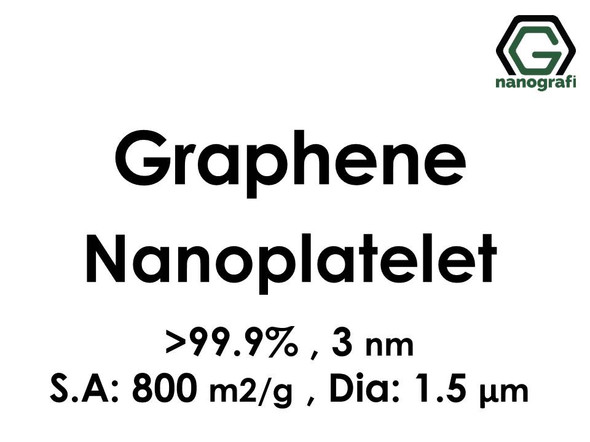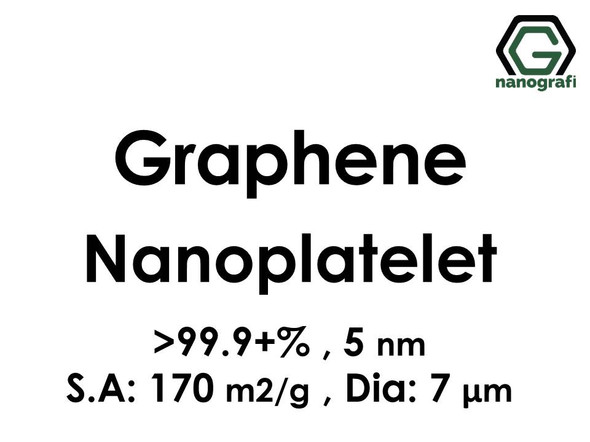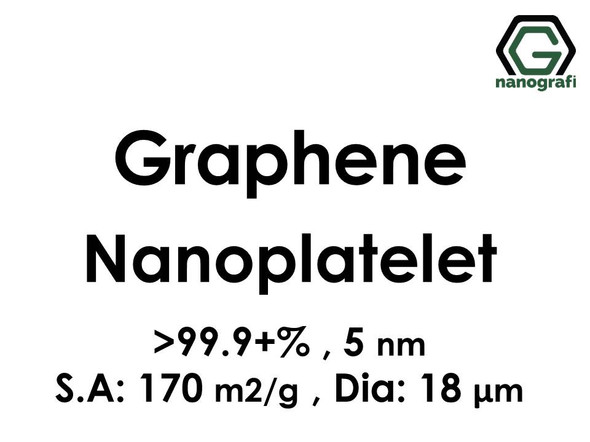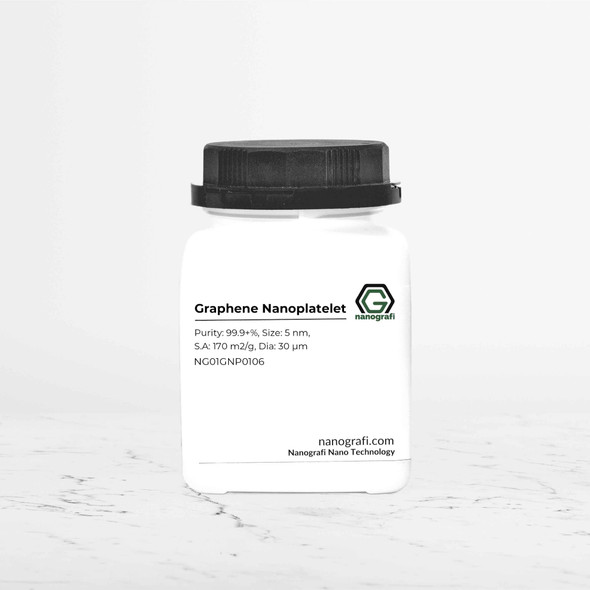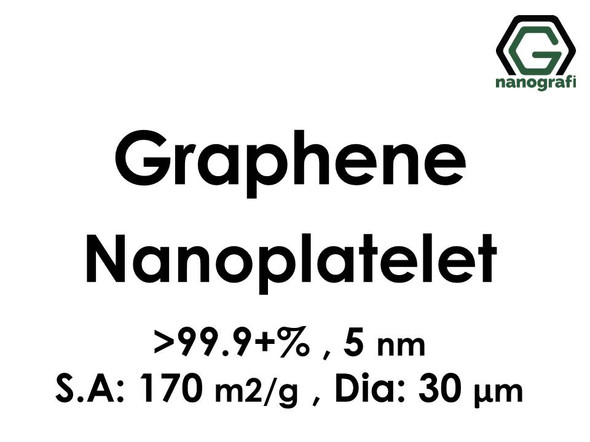Description
1 gram: 10 €
5 grams: 14 €
25 grams:47 €
100 grams: 157 €
500 grams: 587 €
1000 grams: 1087 €
Graphene Nanoplatelet Purity: 99.9+%, Size: 3 nm, S.A: 320 m2/g, Dia: 1.5 μm
Graphene Nanoplatelets are nano particles consisting of short stacks of platalet-shaped graphene sheets that are in a planar form. Graphene nanoplatelets are excellent electrical and thermal conductors as a result of their pure graphitic composition. Graphene nanoplatelets help increase thermal, electrical conductivity and stability and improve barrier properties. Unique features of graphene nanoplatelets benefit it greatly to gain a place in the market. Nanografi supplies Graphene Nanoplatelet with high quantity and more types for different applications.
Technical Properties of Graphene Nanoplatelet
| Purity | 99.9+ % |
| Thickness (nm) | 3 |
| Diameter (μm) | 1.5 |
| Specific Surface Area (m2/g) | 320 |
| Conductivity (s/m) | 1400-1900 |
| Color | Black |
Raman Image
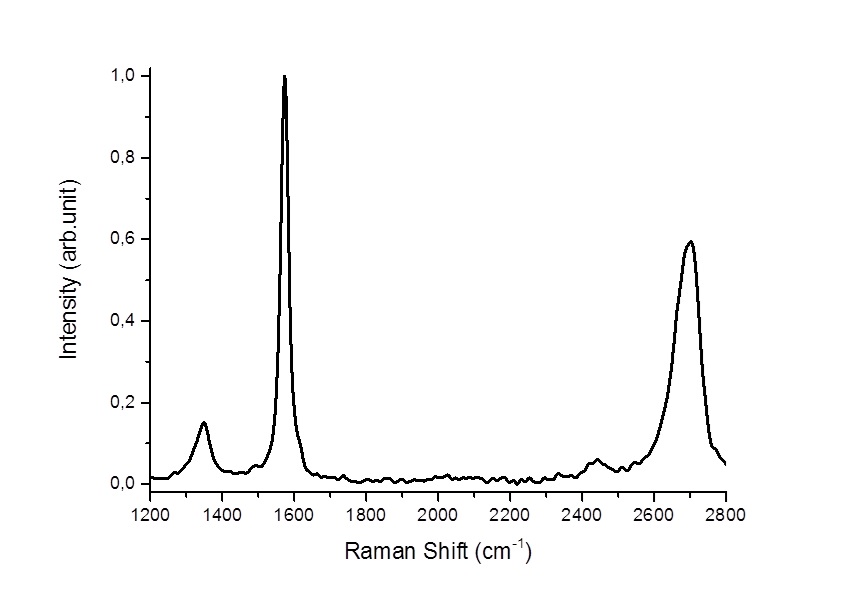
TEM Images
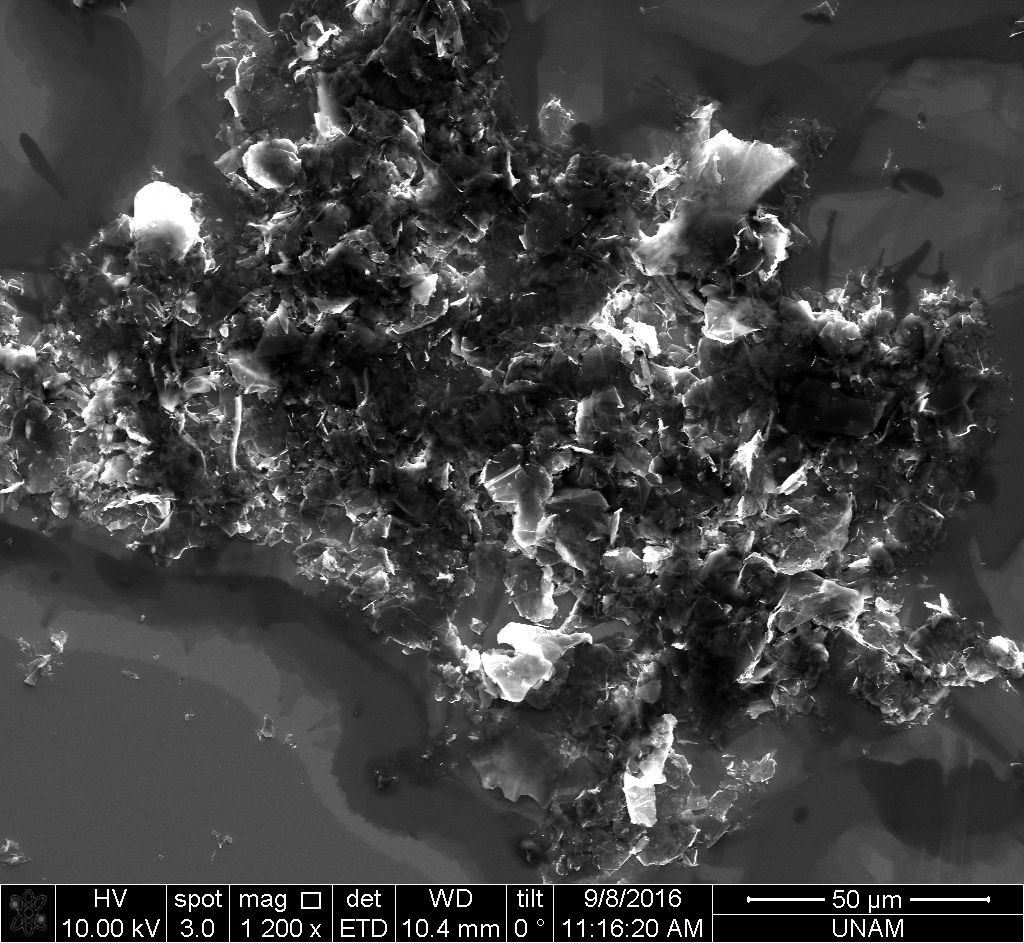
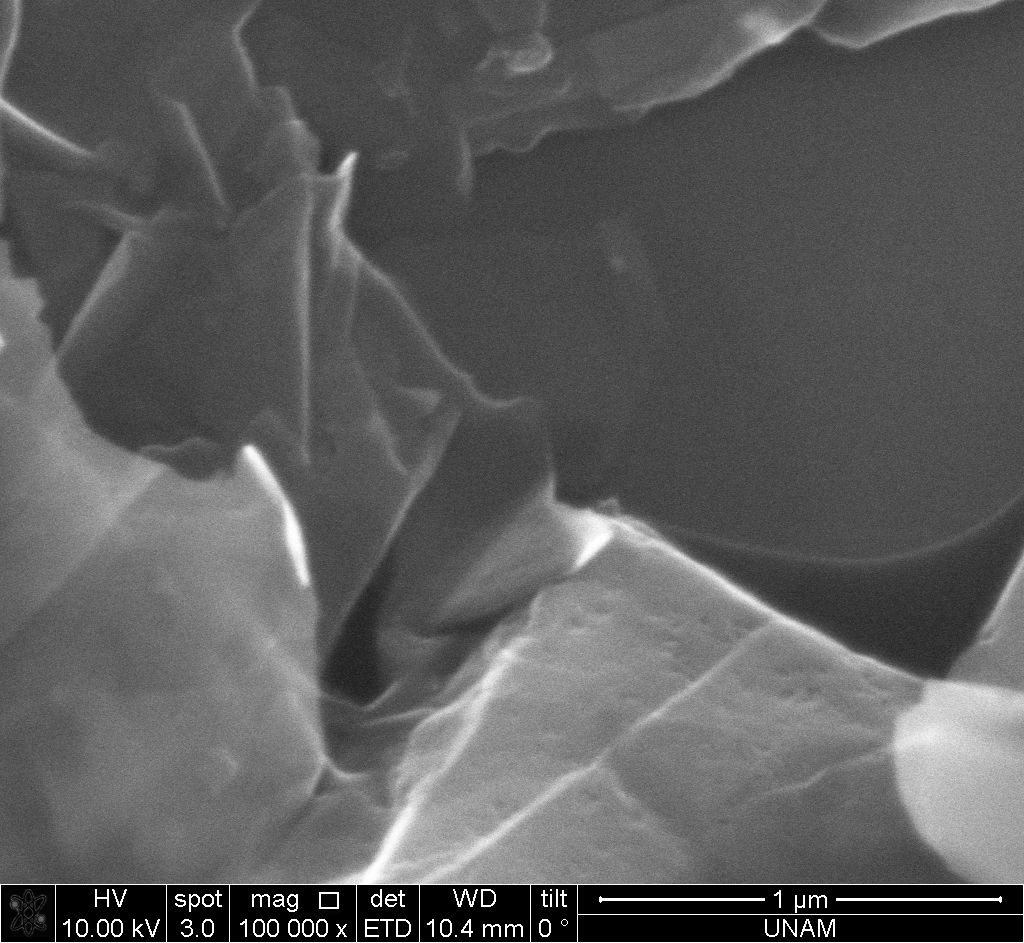
Applications of Graphene Nanoplatelet
- Use as a high performance additive for composites with PPO, POM ,PPS, PC, ABS, PP, PE, PS, Nylon and rubbers.
- Can improve composites tensile strength, stiffness, corrosion resistance, abrasion resistance and anti-static electricity and lubricant properties.
- For all mechanical properties modifications, typical amounts are about 2-6 wt%.
- For conductivity modification, typical amounts are about 2-8wt%.
Additional Information: The addition of Graphene to different composites show improvements in their physical properties. These improvements include electrical conductivity, thermal conductivity, hardness, strength, viscosity etc. Moreover, graphene can replace materials that are used in today’s applications resulting in enhancement of their applications. For example graphene can be integrated into plastics such as epoxy to create a material that can replace steel in the structure of aircraft, improving fuel efficiency, range and reducing weight. It could even be used to coat aircraft surface material to prevent electrical damage resulting from lightning strikes due to its high conductivity.






